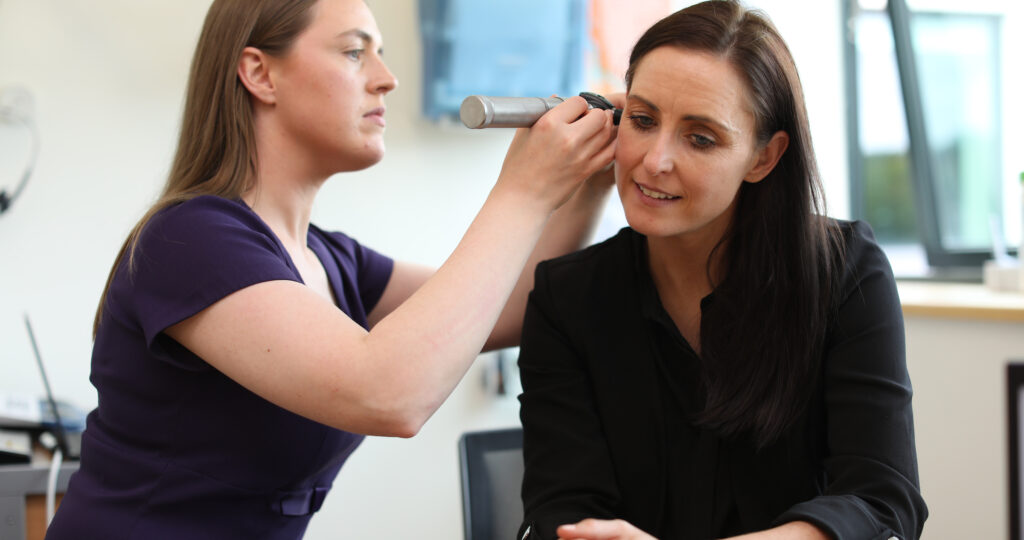Medical FAQs
-
What is neuroplasticity?
Neuroplasticity is the ability of the brain to change or rewire itself continuously throughout a person’s life by forming new networks and pathways. Neuroplasticity can be helpful (adaptive), such as our brain’s ability to learn a new language. It can also be unhelpful (maladaptive). For example, when our brain attempts to rewire itself as a result of damage due to hearing loss, which is believed to lead to tinnitus symptoms, this would be a maladaptive effect of neuroplasticity.
-
What is neuromodulation?
Neuromodulation is a therapeutic treatment which can be used for a wide variety of conditions including pain and depression. It works by alternating nerve activity by delivering a stimulus (such as low levels of electric energy) which then alters or adjusts the activity within the body or the brain to improve the specific health condition. Most recently, neuromodulation has emerged as a potential and promising treatment for the management of tinnitus.
-
What are the symptoms?
People’s experience of tinnitus differs greatly. Most commonly, you will hear it described as an annoying ringing in the ears. You will also hear it described as a buzzing, humming, hissing, or whistling sensation. It can be perceived as being in one or both ears, in the head or even outside the head in certain cases. For many, it’s a constant or fluctuating sound that they will hear all day long – even more so when it’s quiet (such as at night, when there is less external sound to dull it down) – but for others it may be something that comes and goes. Some sufferers will report hearing one single sound whilst others can hear a multitude of sounds. On top of all of these common variations, the sound itself can also vary in both pitch and loudness.
-
Who is affected?
Though not as widely discussed as some other health concerns, the reality is that around 10-15% of a population will experience bothersome tinnitus. To put that into context, if you take the latest population figures from the US (which, in 2019, was just over 328 million), that’s 32-49 million people who will live with tinnitus symptoms. People of all ages can get it; even children. Statistically though, it’s more common in adults as it is associated with hearing loss which is believed to increase with age.
Many people get tinnitus for a short period of time (‘acute tinnitus’ is tinnitus that lasts for a maximum of three months). It can manifest after being exposed to loud music, perhaps at a concert or via headphones, but it can also arise due to an excess in ear wax, or as a result of a cold or a flu. In a lot of these cases, it will pass, but for some, it doesn’t go away, and can be a chronic and bothersome issue.
-
What are the types of tinnitus?
Generally speaking, there are two types of tinnitus: Subjective Tinnitus and Objective Tinnitus.
Subjective Tinnitus is tinnitus that only the person themselves can hear. This is the most common type of tinnitus, encompassing any and all of the aforementioned symptoms.
Objective tinnitus is tinnitus that your GP can hear when they do an examination and put a stethoscope to the ear. This rare type of tinnitus may be caused by a blood vessel problem or ear muscle contractions.
Lenire is a bimodal neuromodulation treatment that focuses on Subjective Tinnitus; as such, we will refer only to Subjective Tinnitus below.
-
What are the causes of tinnitus?
Hearing loss, as a result of ageing, is the most common cause of tinnitus.
Other common causes include eardrum perforation, middle ear infection, Ménière’s Disease, sudden exposure to loud noise, certain medications, head injury, temporomandibular joint disorder (TMJ) and stress.
Less commonly, tinnitus is linked to hearing loss caused by a blockage or ear condition that affects the outer or middle ear and stops sound waves from passing into the inner ear.
-
What do I do if I have tinnitus?
For a lot of people, identifying the specific cause of their tinnitus symptoms proves difficult.
For this reason, it’s important that patients experiencing tinnitus go and see their GP for a full examination in order to diagnose the underlying cause. In some cases, resolving the cause may alleviate the perception of tinnitus, such as an ear infection.
If the GP cannot find an underlying cause, patients may be referred to an ENT Consultant for further investigation. An MRI / CT scan may be carried out to further clarify the problem.
Patients may also be referred on to an audiologist to have their hearing assessed.
Audiologists who specialise in tinnitus can also explain to people the different types of treatments and management techniques available and highlight those which they deem as most suitable to a particular individual.
-
Is tinnitus a problem?
The majority of people who have tinnitus are not particularly bothered by it; they may find it only mildly annoying and ultimately learn to live with it. For some people, however, living with tinnitus can have a serious impact on their quality of life, triggering anxiety, stress, depression and interfering with hearing, sleep and concentration. Whether it’s mild or severe, the good news is that tinnitus is not a life-threatening condition.
Fortunately, the majority of people find that their tinnitus gets better over time. This is because the brain gradually learns to ‘filter it out’ and not pay attention to it. This process is called ‘habituation’. Habituation is one of the main goals of tinnitus treatment and management therapies.
-
How do I manage tinnitus?
There is currently no cure for tinnitus but treatments are available that can help reduce the impact of tinnitus so that you can live a normal, active life. The aim of many treatments is to help you manage your tinnitus to the point where it is no longer a problem. Some treatments also aim to reduce the stress that can be associated with tinnitus.
The best way to manage your tinnitus is to visit a trained healthcare professional. The treatment they recommend for each patient will depend on the nature of the tinnitus, how it impacts them, and whether they have any other underlying problems. It may also depend on what is comfortable or acceptable for each patient.
Whichever treatment path is recommended to you, it is important to understand that it can take time for things to improve. Immediate relief may be achieved. Ultimately the aim is to become more comfortable with the tinnitus, to realise that it doesn’t have to effect your quality of life and, most importantly, that you can be in control of it.
-
What is bimodal neuromodulation?
Bimodal neuromodulation is the stimulation of not one but two nerves at the same time. With Lenire, for example, you have the combination of electrical stimulation via the tongue as well as auditory stimulation via the ear. Research has suggested that the combined stimulation of these two nerves drives stronger adaptive neuroplasticity, which in turn can reduce the brain’s attention and sensitivity to the tinnitus sound to a greater extent than when stimulating only a single nerve at a time.
-
Is Lenire better suited for certain types of tinnitus?
Lenire is recommended for patients with subjective tinnitus (where the sound or ringing sensation is only audible to the person experiencing it, regardless of the type of sound they are hearing).
-
Is treatment with Lenire complete after 12 weeks? How soon can you expect results?
Neuromod’s clinical studies of treatment with the Lenire device ran for a 12 week period. Some patients may see results as early as 6 weeks and for some it may take 12 weeks or longer. Upon completing the 12 week course, you will reassess your symptoms with your healthcare professional who will then advise you as to whether or not you would benefit from continuing to use Lenire (beyond the initial twelve weeks).
-
What if I have hyperacusis (sound intolerance)?
Lenire is configured to each patient’s hearing thresholds. Once configured the volume of the treatment can be reduced or increased by a maximum of 12 decibels if required. Where sound intolerance is an issue, it is advised that you discuss this with your healthcare professional before starting treatment.
-
What is the advantage of bimodal neuromodulation?
Various research and clinical studies have shown that the combined stimulation of auditory (via the ear) and somatosensory nerves (via the tongue, for example), such as achieved using the non-invasive Lenire device, is more effective when it comes to inducing the positive neuroplasticity important to ease the tinnitus symptoms than stimulating one input at a time. This serves to counter the unhelpful neuroplasticity that gives rise to tinnitus in the first place.

